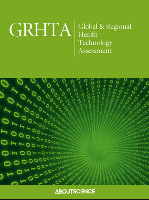
Global & Regional Health Technology Assessment
Scope & Guideline
Connecting research to policy for global health impact.
Introduction
Aims and Scopes
- Health Technology Evaluation:
The journal aims to provide comprehensive evaluations of various health technologies, including pharmaceuticals, medical devices, and diagnostic tools, focusing on their clinical efficacy, safety, and cost-effectiveness. - Economic Impact Analysis:
It emphasizes the importance of economic evaluations, including cost-effectiveness and budget impact analyses, to assess the financial implications of health interventions on healthcare systems. - Real-World Evidence:
The journal prioritizes studies that utilize real-world data to evaluate health technologies, thereby informing clinical practice and healthcare decision-making with practical insights. - Policy Recommendations:
It aims to influence health policy by providing evidence-based recommendations for the pricing, reimbursement, and regulation of health technologies. - Patient-Centered Outcomes:
The journal also focuses on the assessment of patient-reported outcomes and their significance in evaluating the impact of health technologies on patient quality of life.
Trending and Emerging
- Patient-Centered Approaches:
There is an increasing emphasis on incorporating patient-reported outcomes and experiences into health technology assessments, reflecting a broader trend towards patient-centered care. - Real-World Data Utilization:
The use of real-world data for evaluating the effectiveness and economic impact of health technologies is becoming more prevalent, indicating a shift towards evidence that reflects actual clinical practice. - Innovative Pricing and Reimbursement Models:
Emerging discussions around innovative pricing strategies and reimbursement models for new therapies highlight the need for adaptive approaches in light of evolving healthcare landscapes. - Impact of COVID-19 on HTA:
The journal is increasingly addressing the implications of the COVID-19 pandemic on health technology assessments, including changes in regulatory processes and the prioritization of certain health technologies. - Multicriteria Decision Analysis (MCDA):
The application of multicriteria decision analysis in health technology assessment is gaining attention, providing a structured approach to evaluate complex decisions involving multiple stakeholders.
Declining or Waning
- Traditional Clinical Trials:
There is a noticeable decline in the focus on traditional randomized controlled trials as the primary method for evaluating health technologies, with a growing preference for real-world evidence. - General Health Economics:
The broader field of health economics, while still relevant, seems to be overshadowed by more focused analyses such as cost-effectiveness and budget impact specific to particular diseases or therapies. - Regulatory Frameworks:
Discussions centered around the regulatory frameworks for HTA processes have decreased, indicating a potential shift towards more practical applications and outcomes of HTA rather than the processes themselves.
Similar Journals

ADVANCES IN THERAPY
Pioneering insights in medicine and pharmacology.ADVANCES IN THERAPY is a prestigious peer-reviewed journal published by SPRINGER, specializing in the diverse fields of medicine and pharmacology. Established in 1984, this influential journal has become an essential resource for researchers and professionals, boasting a commendable impact factor and categorically ranking within the Q1 quartile in both Medicine (Miscellaneous) and Medical Pharmacology as of 2023. With an impressive Scopus ranking at #52 out of 272 in the realm of medical pharmacology, it places itself in the top 81st percentile, underscoring its importance in advancing therapeutic knowledge and practices. Although the journal is not open access, it provides invaluable insights and the latest research findings in therapies that significantly impact patient care, making it a vital reference for clinicians, academicians, and students alike.
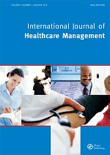
International Journal of Healthcare Management
Connecting scholars and practitioners in healthcare management.The International Journal of Healthcare Management, published by ROUTLEDGE JOURNALS, TAYLOR & FRANCIS LTD, stands as a crucial platform for the dissemination of innovative research and insights in the realm of healthcare management. With a focus on health policy, leadership, and management, this journal aims to bridge the gap between theory and practice, providing a valuable resource for researchers, professionals, and students alike. It boasts an impressive Q2 ranking in Leadership and Management and a Q3 ranking in Health Policy for 2023, highlighting its influence and relevance within the academic community. With an accessible ISSN of 2047-9700 and E-ISSN of 2047-9719, the journal features an array of peer-reviewed articles that promote the advancement of knowledge and best practices in healthcare settings. While currently not offered as open access, the journal publishes high-quality research that underscores the importance of effective management strategies in enhancing healthcare outcomes. Positioned in the United Kingdom, the journal continues to contribute significant knowledge and frameworks that guide healthcare leaders and policymakers in navigating the complexities of governance in health services.
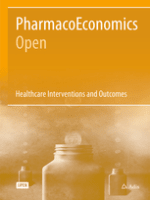
Pharmacoeconomics-Open
Elevating Understanding of Cost-Effectiveness in MedicinePharmacoeconomics-Open, an esteemed journal published by SPRINGER INT PUBL AG, is a vital resource for scholars and practitioners in the fields of health policy and pharmacology. Since its transition to an Open Access platform in 2017, the journal has aimed to democratize access to valuable research, fostering innovation and collaboration globally. With notable rankings in the 2023 Scopus indices—including Q2 in Health Policy and both categories of Pharmacology—Pharmacoeconomics-Open engages with pressing issues in health economics, providing insights into cost-effectiveness analyses and healthcare decision-making. The journal’s commitment to high-quality, peer-reviewed articles ensures that it remains a significant player in advancing knowledge and understanding within its disciplines, serving as an essential forum for researchers, policymakers, and students alike.

MEDICAL DECISION MAKING
Innovating methodologies for impactful medical research.Medical Decision Making is a premier journal published by SAGE Publications Inc, dedicated to advancing the field of health policy through rigorous research, innovative methodologies, and comprehensive analyses. Since its inception in 1981, it has established itself as a leading platform for disseminating significant findings, and it proudly holds a Q1 ranking in the health policy category, underscoring its commitment to excellence within the academic community. With an impressive Scopus rank of 43 out of 310, the journal ranks in the top 14% of its field, reflecting its influential contributions to medical decision-making processes. Medical Decision Making serves a diverse audience of researchers, practitioners, and policymakers by providing scholarly articles that blend theoretical insights with practical applications, ultimately improving patient care and health outcomes. The journal's dedicated following and its continued relevance through to 2024 position it as an essential resource for anyone vested in the evolution and implementation of effective health policies.

HEALTH TECHNOLOGY ASSESSMENT
Advancing the future of healthcare through rigorous technology assessment.HEALTH TECHNOLOGY ASSESSMENT is a prestigious open-access journal published by the NIHR Journals Library, focusing on advancing the science of health technology assessment through robust research and critical analysis in the fields of Health Policy and Medicine. Since its inception in 2001, this journal has fostered a multidisciplinary approach to evaluating health technologies, offering invaluable insights to researchers, healthcare professionals, and policymakers. With an impressive Q1 ranking in both Health Policy and Medicine (miscellaneous) for 2023, it stands at the forefront of academic discourse, reflecting a high-impact factor and an esteemed reputation within its respective categories. The journal not only publishes original research articles, but also reviews and case studies that illuminate the complexities of health technology in real-world applications. Established and based in the United Kingdom, HEALTH TECHNOLOGY ASSESSMENT strives to encourage evidence-based decision-making, making it an essential resource for anyone committed to enhancing healthcare outcomes through innovative technology assessments.

Risk Management and Healthcare Policy
Navigating the complexities of healthcare risk with expert analysis.Risk Management and Healthcare Policy is an esteemed Open Access journal published by DOVE MEDICAL PRESS LTD, dedicated to advancing the fields of health policy and public health. Established in 2008, the journal fosters a rich dialogue among researchers, professionals, and students, focusing on innovative strategies for managing risks within healthcare systems. With a current impact factor reflected in its robust Scopus rankings—placing it in the top quartile (Q2) in both Health Policy and Public Health, Environmental and Occupational Health—the journal is a pivotal resource that shares critical insights and evidence-based practices. The journal not only covers empirical studies and analytical research but also promotes discussions on emerging challenges and opportunities within the healthcare sector. As a result, Risk Management and Healthcare Policy serves as a vital platform for disseminating high-quality research, fostering collaboration, and informing policy decisions aimed at enhancing health outcomes globally.
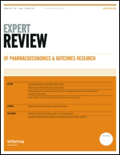
Expert Review of Pharmacoeconomics & Outcomes Research
Bridging the Gap Between Research and Real-World OutcomesExpert Review of Pharmacoeconomics & Outcomes Research is a leading journal published by TAYLOR & FRANCIS LTD, focusing on the critical intersection of pharmacoeconomics and healthcare outcomes. Established in 2001, the journal has been a key resource for researchers and professionals in the fields of health policy, medicine, and pharmacology, consistently ranked in the top quartile of these categories for its influential insights. With an ISSN of 1473-7167 and an E-ISSN of 1744-8379, it delivers cutting-edge research that informs healthcare decisions and policy frameworks. The journal's rigorous peer-review process ensures the publication of high-quality, impactful articles that address contemporary challenges and advancements in pharmacoeconomic evaluations. As of 2023, it boasts a commendable ranking of #106 in Health Policy and #124 in Pharmacology, affirming its relevance and contribution to the field. Despite being a subscription-based journal, the strength of its content makes it an invaluable tool for researchers and practitioners aiming to enhance patient outcomes and optimize resource allocation in healthcare systems.

Journal of Health Economics and Outcomes Research
Advancing health policy through innovative research.Journal of Health Economics and Outcomes Research, published by COLUMBIA DATA ANALYTICS, LLC, serves as a vital resource in the field of health policy and public health, providing researchers, professionals, and students with open access to pioneering studies since its inception in 2013. With its ISSN and E-ISSN both listed as 2327-2236, this journal aims to disseminate high-quality research that evaluates healthcare efficiency and outcomes. Situated in the United States, at 145 Hudson St., Suite 205, New York, NJ 10013, it has made significant strides in its category quartiles within the 2023 rankings, achieving Q2 status in both Health Policy and Public Health, Environmental and Occupational Health. Furthermore, it maintains respectable Scopus rankings, with a percentile of 51st in health policy and 49th in public health. By bridging gaps in health economics and policy discourse, the journal stands as an indispensable platform for advancing knowledge and fostering innovation in health services research.
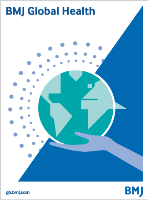
BMJ Global Health
Connecting researchers to shape the future of global health.BMJ Global Health is a premier open-access journal published by the BMJ Publishing Group, dedicated to advancing the field of global health through the dissemination of high-quality research, innovative ideas, and impactful policy analysis. Established in 2016 and based in the United Kingdom, this journal has rapidly ascended to prominence, evidenced by its solid impact factor and ranking in the Q1 category for both Health Policy and Public Health, Environmental and Occupational Health. With its commitment to open access, BMJ Global Health ensures that vital research is freely available to enhance public discourse and inform decision-making processes around the world. The journal welcomes contributions that address pressing global health challenges and offers researchers an influential platform to shape health practices and policies. With Scopus rankings placing it in the top percentile of its categories, BMJ Global Health is indispensable for anyone seeking to stay at the forefront of health discourse and practice.
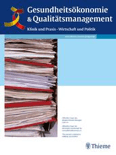
Gesundheitsoekonomie und Qualitaetsmanagement
Navigating the Complexities of Healthcare EconomicsGesundheitsoekonomie und Qualitaetsmanagement, published by THIEME MEDICAL PUBL INC, serves as a vital resource in the field of health policy, particularly within the context of Germany. Since its inception in 1999, this journal has been committed to advancing the discourse on health economics and quality management, making significant contributions to understanding the complexities of healthcare systems. With an impact factor that reflects its ongoing importance, the journal is categorized in the Q4 quartile for Health Policy as of 2023, indicating its role in serving a niche yet crucial space in medical literature. Although currently not an open access journal, it remains accessible through various academic platforms, making its content available to a diverse audience of researchers, healthcare professionals, and students eager to engage with contemporary issues in health economics. With its publication continuing through 2024, Gesundheitsoekonomie und Qualitaetsmanagement is essential for anyone looking to deepen their understanding of the economic aspects of healthcare and ensure quality management in health services.